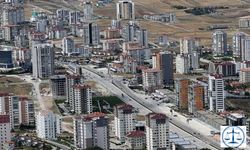The report on ByLock, prepared by the Security forces, which was entered into the investigation as evidence, was prepared in a senseless way and was neither scientific nor legal and could not prove any relations with FETO organization. The data in the report could not be taken seriously since the conversations held by the journalists was due to their social and job-related duties. As a matter of fact, the details and the “communications” claims proved this point.
On April 2nd, the Interior Minister, Suleyman Soylu, reported the number of persons taken into custody for being involved withFETÖ was 113 thousand. The persons under investigation who had not yet been taken into custody were not included in this number. According to Soylu, 41. 499 persons were released by judicial control decision and 23.861 were set free. In terms of the people who were arrested: 10.732 were police, 7.631 (168 being generals) were from the military. 2.575 judges and prosecutors were also among the arrested. Aside from the 26.177 civilians, 208 members of the local authority took place. Considering this large number of people, it is highly likely and possible that any journalist might have spoken to or had messages with these persons.
Ambiguous “communication”
Clearly, an investigation on the last ten years’ communication records would reveal that all AKP associates have been contacted by an alleged FETO member or a ByLock user, without any exceptions. Besides, nobody bears the responsibility for knowing or investigating whether the people contacting them are ByLock users or FETO members. Government-supporter media outlets have been circulating reports on “ByLock Communications”. Instead of discussing the content of those reports, it is necessary to discuss what is “missing” in those reports. Those reports do not mention the phone numbers that are allegedly in contact with phones with ByLock application downloaded. Also, they don’t mention the form of the communication. These reports specify the form of communication as “conversation” only for some. However, for remaining hundreds of records there is no information on whether these “communications” are in the form of text messages, calls, or only saved contacts. It is suspicious why these reports skip that crucial piece of information and continue to use “communication” term. This suggests that the investigating authorities may treat even one-sided text messages as “communication” in their reporting.
Journalist contacts anybody!
This point can be further simplified: For instance, if somebody parks right in front of your car and blocks yours, you may call the phone number on the windshield, and if that number is a ByLock user, then you are considered as in “contact” with a FETO suspect. This can be also the case with any contact or phone number of an acquaintance or even colleague saved in your device. Moreover, a very basic rule for journalists is that a journalist contacts anybody. Because this is the only way that a journalist can report to inform the public about events that raises public concern. Based on this principle, a journalist is a person who may meet and interview the President and a wanted terrorist organization leader on the same day. Here, what matters is whether these interviews comply with universal principles of journalism as these meetings transform into “news” that aim informing the public.
Meetings back in 2007
According to those reports circulated by the pro-government media outlets, Cumhuriyet columnists’ and administrative staffs’ meetings with their colleagues are also referred to as criminal evidence. For instance, our columnist Aydin Engin’s one-time-meeting with Harun Tokak, the former president of the Journalists and Columnists Foundation, a columnist in Yeni Safak newspaper, who is now on trial in Ankara-based main FETO case is included in that report. Similarly, Orhan Erinc’s meetings with former head of Media Ethics Council Halit Esendir are referred to as being in contact with him. Also, Can Dundar’s one-time meetings with Onder Aytac in years 2007, 2008, 2009, 2010 and 2014, as well as his one-time meeting with Ekrem Dumanli in 2015 are mentioned as “communications” in that report. Even Can Dundar’s call to Huseyin Avni Mutlu who is the former mayor of Istanbul is regarded as criminal evidence and added to the indictment after Mutlu was investigated as a part of FETO case in the aftermath of the July 15 Coup Attempt.
Cumhuriyet case suspects are accused of their “communcations” with owner of a popular restaurant, a former district governor, an officer working in the mayor’s office, a publicist, journalists and academics who are now imprisoned. The communications that are now treated as criminal evidence against the Cumhuriyet’s staff also include communications with Bulent Kenes, former chief editor of Today’s Zaman newspaper, columnists Lale Sariibrahimoglu, Nazli Ilicak and Murat Aksoy; Professor Istar Gozaydin, Bugun Newspaper’s correspondent Cihan Acar, Erkan Akkus, DIHA correspondent Metin Yoksu, and Ibrahim Aytac Anli, secretary of Abant Platform who is also a ByLock user.
Kadri Gursel’s Response
Police reports indicate that our editorial consultant and columnist Kadri Gursel was in contact with 92 ByLock users, but without specifying the form of these contacts. Gursel’s statement on this reveals what the ByLock report indicates: “I have some guesses on where these ByLock reports get their information from. When the first wave of detentions related to the FETO case started in the Spring of 2014, I received hundreds of text messages from people that I presume as followers of the Gulen Movement. These text messages were urging the journalists and the media to take action against these detentions. I guess these text messages are interpreted as “communications” since I was an active journalist participating in TV programs. However, I never contacted back these people. I didn’t even replied to these text messages. A second possibility I can think of is that there may be ByLock users among my over 350,000 followers on Twitter who have retweeted my tweets, and these might have been regarded as “communication” with ByLock users. My call to the judiciary is that they should declare the content and nature of these so-called ‘communications’, whether they called, texted, or retweeted or I called them. Otherwise they continue to mislead the public opinion with this ambiguity.”
Are the Ones who called the Prosecutor FETÖ Supporters?
The main accusations in the charges are based on the ByLock report. Hence, the prosecution argued that the news and articles could not be treated within the freedom of speech and included the communications of the “suspects” with the ByLock users and FETÖ suspects in the investigations. It is easy to see the irrationality of these actions and several examples can be provided. For example, Murat Inam, the prosecutor who began and continued the investigations is himself under investigation for being part of FETÖ with a possible penalty of life in prison.
According to the defendant Inam, a lawsuit should be filed against the other prosecutors with which the Prosecutor Inam had phone conversations, text messages, and meetings, for conspiring with FETO through “communications” claims. This meant that any judicial member who had communication with any of the imprisoned judge and prosecutor would be considered guilty as well! According to this outlook on the part of the Prosecution, the head of Constitutional Court (AYM), Zuhtu Aslan and other members could be considered suspects in “aiding the organization” since they had communications with the imprisoned members of the Constitutional Court (AYM). How else could we show that this “communications connection” report is proof that the case against Cumhuriyet has been illegal from the beginning.
WAVE OF ATTACKS
Beginning with Charlie Hebdo...
Making Cumhuriyet the target of attacks began when AKP came to power and has continued to date. During the Ergenekon case which was led by the AKP - “cemaat” (Gulen Congregation) coalition, the editor-in-chief and other writers of Cumhuriyet were arrested. After the attack at Charlie Hebdo, Cumhuriyet was thrown into the same bag as the FETÖ operations.
The “time frame” and the articles in the media against Cumhuriyet within the claims in the investigations and case against our writers and managerial team prove this fact. After the terror attack on Charlie Hebdo, the satirical magazine, Charlie Hebdo, the articles published in Cumhuriyet became the target for a new wave of attacks.
OPERATION OF PERCEPTION
An infidel and “Parallel”
On January 14, 2014, Cumhuriyet newspaper published a 4 page article in the special issue to support the anti-terror activities. The trucks carrying the newspaper was stopped by the police, examined thoroughly and was distributed only after approval of the prosecutor. A banner with the following written on it: “You are both parallel and an infidel, who are you working for Cumhuriyet” was hung on the Ankara branch of the Cumhuriyet newspaper by a group of 15 whose identities are unknown.
“PIRATED” BANNER
Statement from the Partisan Media
The war between the AKP and FETÖ was ignited by the headline from Zaman newspaper published on November 14, 2013 about the forced closings of the private training centers. The battle of the operation on bribery and corruption, which began on December 17, 2013, was taken to the next level. The word “parallel state” was introduced to represent the infiltration of the “Fetullah Gulen congregation” into the public institutions and their ability to act as a “state” within the state. To use of this banner to represent Cumhuriyet newspaper as an infidel and acting alongside the parallel state came out through the support of an international satirical magazine which suffered a terrorist attack. The fact that the words expressed on the banner, hung by “unidentified’ persons, turned into statements used by the partisan media and the government officials demonstrated the effectiveness of the perception operation.
Translated by “Solidarity of Freedom of Ahmet Şık”
How the plot started
The FETO investigation from the experts
The crime of calling a travel agency
Kaynak: Cumhuriyet.com.tr





